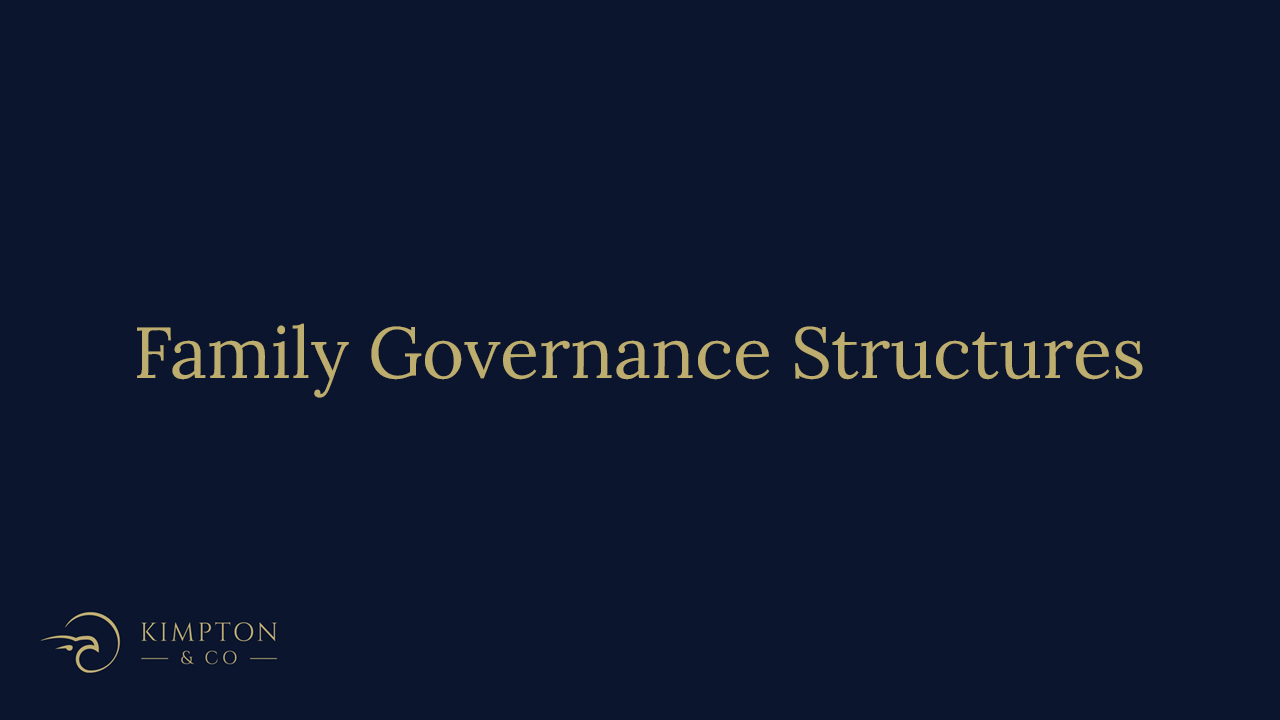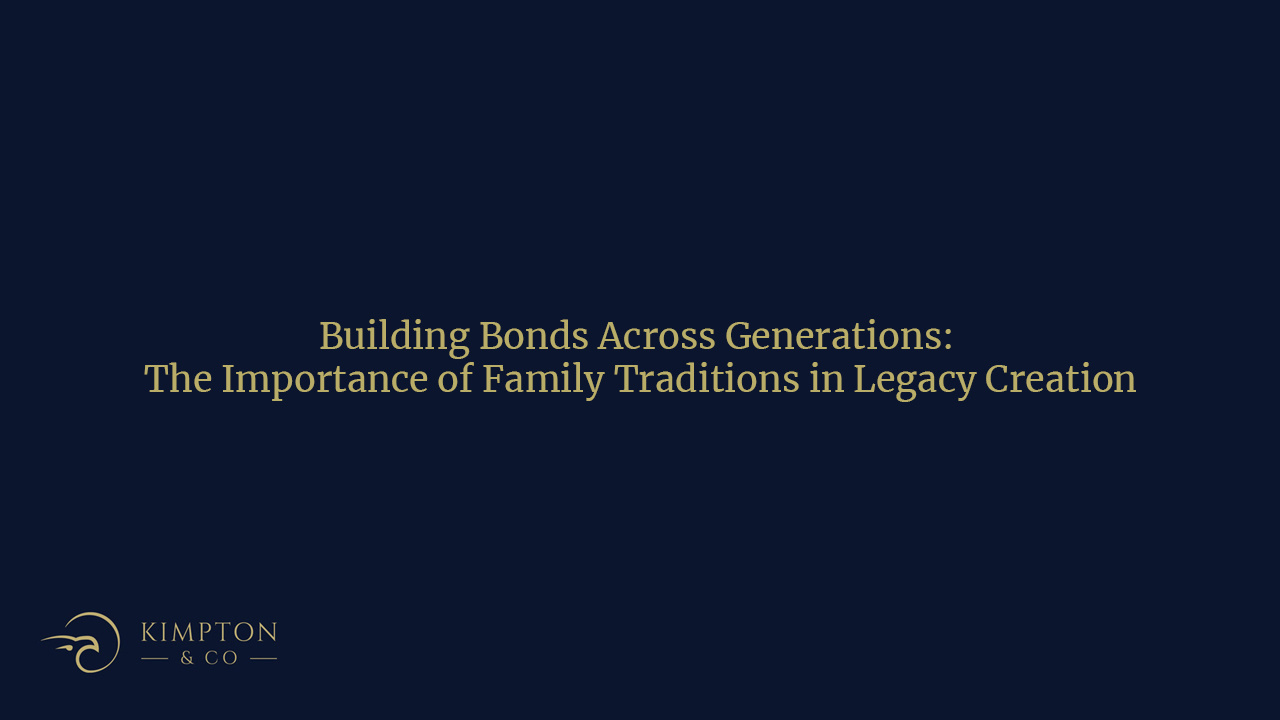Family Governance Structures: Understanding Your Options
The Foundation of Multigenerational Wealth Management
Successful families of means understand that preserving wealth across generations requires more than just savvy investment strategies. It demands thoughtful governance structures tailored to specific family circumstances, values, and long-term objectives.
Two primary structures have emerged to address these needs: the traditional Family Office and the Family Council. While often confused or used interchangeably, these structures serve distinct purposes and are appropriate for different situations.
The Domains of Family Wealth & Leadership
Before exploring these structures, it's worth understanding the comprehensive scope of developing connected family longevity. According to the Purposeful Planning Institute, family intergenerational planning spans 9 domains under two main categories; wealth creation/stewardship and the cultivation of family capital - the people:

A truly effective governance structure addresses all these domains in a holistic manner rather than focusing exclusively on the financial assets.
Traditional Family Office: Asset-Focused Management
What It Is
A family office is an entity established specifically to manage a family's wealth through a dedicated team of professionals. This specialized operation provides integrated services that would typically be fractured across multiple providers.
Key Functions
- Investment management and strategy
- Tax planning and compliance
- Estate planning and wealth transfer
- Budgeting and accounting
- Risk management and insurance
- Charitable giving and foundation management
When It's Appropriate
Family offices typically become financially viable at higher net worth thresholds:
- Internationally: Often cited minimum assets of $200-500 million
- In New Zealand: May be considered an option when holding upwards of $50 million
The general rule of thumb is that operating a comprehensive family office costs approximately $1 million annually, making it important that the management expense ratio remains reasonable relative to total assets.
Limitations
While excellent at asset management, traditional family offices may underemphasize the human elements of wealth continuity such as family cohesion, next-generation preparation, and values transmission.
Family Council: Relationship-Focused Governance
What It Is
A family council is a structured forum or advisory body designed to address family-related matters beyond pure asset management. It serves as the family's informal governing body for addressing shared interests, preserving the family’s core essence, and fostering communication & leadership that in turn enhances collective decision making that stand the test of time.
Key Functions
- Articulating and preserving family values
- Facilitating communication among family members
- Developing family mission statements and charters
- Managing succession planning and next-generation education across the plethora of holistic life & business skills
- Developing family leadership platforms that create trust & experience for family decision making
- Promoting family harmony and managing conflicts & their resolutions
- Ensuring understanding of previous generations' wishes and intent
When It's Appropriate
Family councils are valuable at nearly any financial wealth level where maintaining strong family bonds is a priority. They're especially beneficial for families who value:
- Preserving family stories, traditions, and cultural heritage that define your family's unique identity
- Building a shared sense of purpose that unites family members beyond financial interests
- Fostering emotional intelligence and relationship skills that benefit family members in all aspects of life
- Developing meaningful connections that transcend geographical distance and busy modern lives
- Cultivating a support network where family members genuinely care about each other's wellbeing and success
- Ensuring that future generations understand not just what the family owns, but who they are as a collective
- Creating enduring relationships where cousins remain close friends across generations
Unlike family offices which require substantial financial resources, family councils can be implemented affordably, making them accessible to families who recognize that their greatest legacy isn't measured in dollars but in the strength of their relationships and shared values.
Family councils are valuable at nearly any financial wealth level where:
- Preserving family legacy and values is a priority
- Family businesses or investments require collective decision-making
- Multiple family members have stakes in shared assets
- Some level of intergenerational wealth transfer is anticipated
Unlike family offices, councils can be implemented without substantial operational costs, making them accessible to a broader range of families.
Finding the Right Structure for Your Family
The optimal governance structure depends on your specific circumstances:
- Asset Size and Complexity: Larger, more complex portfolios may benefit from the comprehensive services of a family office.
- Family Dynamics: Families with multiple branches or generations typically need the communication framework a family council provides.
- Primary Objectives:
- Focus on investment returns and tax efficiency. Consider a family office.
- Focus on harmony, values transmission, and family continuity. Prioritize a family council.
- Stage in Wealth Cycle: First-generation wealth creators often focus on wealth management, while later generations need structures for shared governance guiding decision making processes.
Many families find that a hybrid approach works best—perhaps starting with a family council to establish shared values and decision-making processes, then adding family office functions as assets grow.
Starting With the Fundamentals
Regardless of which structure you choose, begin with fundamental elements:
- Develop a family charter articulating shared values and vision
- Establish communication protocols
- Define decision-making processes and begin implementation of ongoing experiential opportunities
- Create competency development pathways for next-generation family members
Remember that governance structures should evolve as family circumstances change. What works for a first-generation wealth creator may not serve the needs of third-generation cousins.
The most effective family governance structures are those designed with intention, regularly reassessed, and adapted to meet changing family needs while remaining true to core values.
By thoughtfully addressing all domains of family wealth—not just financial assets—you can create governance structures that support true multigenerational prosperity.
Building effective family governance structures requires expertise, facilitation, and customized approaches that honour your family's unique circumstances. At Kimpton and Co, we specialize in helping families develop and implement family councils and holistic governance platforms that address all domains of family wealth. Our experienced team has guided numerous families through this transformative process, creating frameworks that strengthen bonds while preserving financial assets. Visit our website at www.kimptonandco.co to learn more about our approach, receive our bi-monthly newsletters or schedule a free, no-obligation chat to discuss how we can support your family's multigenerational journey. We're committed to helping your family create a legacy that transcends wealth—one where values endure, relationships flourish, and future generations remain genuinely connected.






-2.png)
Leave a Reply